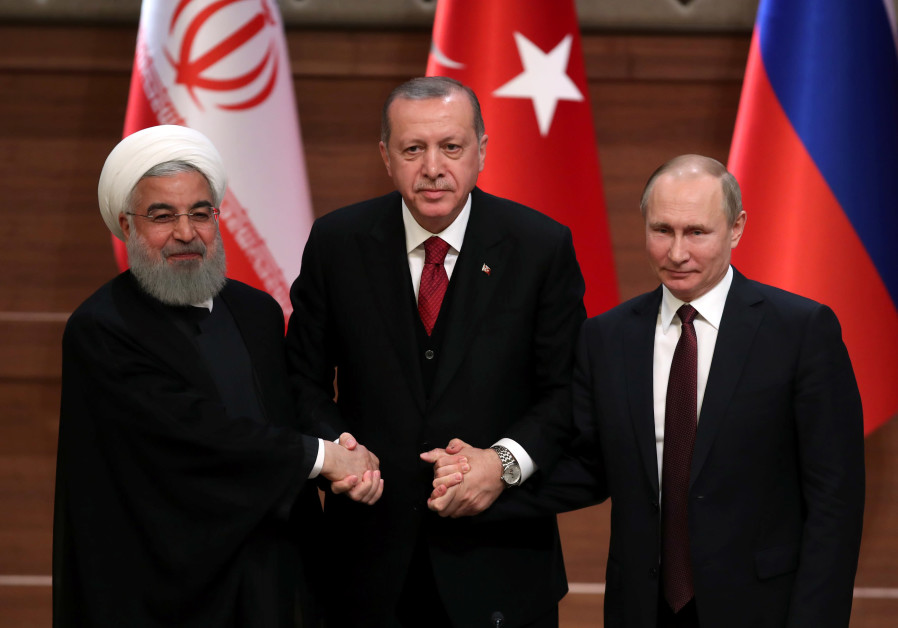For the past three years, Erdogan proved himself as an acceptable counterpart for Russian officials in many regional issues.
Timur Akhmetov

Elections create a miniature crisis for every political regime. Local elections in Turkey elections and the run-off election in Istanbul exposed a serious deficiency in nature of Erdogan’s rule and its legitimacy in large urban centers.
This has serious implications for Russian-Turkish relations, with the legitimacy of foreign policy decisions falling hostage to fluctuations of domestic politics. Arrangements with long-term strategic implications become hard to sustain. Few foreign players would wish to engage a ruler with uncertain future. This, however, doesn’t stop Russia from dealing with Erdogan.
For the past three years, Erdogan proved himself as an acceptable counterpart for Russian officials in many regional issues.
The increasingly unstable position at home forces the Turkish leader to seek validation through its active foreign policy. Under increasing international isolation, Erdogan, who wants to deliver ostensibly successful deals, can rely on few foreign partners – and Russia has appeared the most willing to cooperate.
This kind of cooperation heavily tilts bilateral relations in favor of Russia. The Turkish leader’s ambitions and anxieties can be successfully channeled in the right direction and ultimately converted into long-term commitments conducive to Russian strategic interests both in the adjacent regions and inside Turkey.
It is in this context that the nature of the S-400 deal is most revealed. While it can be argued that the arms contract is a purely commercial deal, as Russian officials have been asserting, the sale of Russian air defense systems to Turkey would not have been important for Russia if it didn’t serve Russian long-term interests.
There are two important things to bear in mind . First, Russian defense systems, designed to counter NATO’s fifth-generation F-35s, are supposed to stay in service within the Russian A2/D2 perimeter for the next 25 to 30 years.
The radar components of the system are expected to contribute to the Russian counter-measures against attempts of the NATO alliance to build advanced offensive potential in Europe.
Second, disagreements between Ankara and Washington over the purchase of the Russian weapons exacerbated the deep-rooted conflict of worldviews between political elites in both nations. This is not only about how to treat Russia, what to do with Assad or how deal with the Kurds in the Middle East.
Desire for a more independent foreign policy and more assertive posture in the Middle East and eastern Mediterranean is shared by Turkish elites, ruling and opposition. The drive behind this exceeds the lifespan of Erdogan’s rule.
One can argue that decision to sell the S-400s to Turkey is short-sighted. Why would Russia invest this much in a regime that is gradually losing its legitimacy, capacity and resources to keep the agreement? Moreover, there is broad opposition to the Russian arms acquisition and rapprochement with Moscow among major opposition parties in Turkey. With a change of government in Turkey, if it happens democratically, the strategic effect of the S-400 deal on the Western security alliance can be mitigated considerably and technical secrets of the Russian arms could be compromised.
The Crimean example shows that Russia may have long-term plans to reinforce its influence in its surrounding alleged “zone of influence.” Russian leadership, however, is neither ready nor capable of directly challenging Western interests and the existing status quo in the nations under normal conditions of political processes. Moscow feels more confident in mobilizing its resources to take quick advantage of the emerging critical situation to dramatically tilt the balance of power in the area in its favor.
With the Turkish political processes getting increasingly derailed, any structural change in Turkey becomes possible only through extraordinary procedures (like calling for early elections, application to the Constitutional Court or boycotts, to name the least extreme).
Political stakeholders feel more compelled to think about resorting to such measures not only to keep Turkey within realm of democratic rule, but to survive as well.
Post-coup purges in Turkey failed to establish much-needed transparent public control over bureaucracy and security agencies. A lack thereof paved a way to increasing politicization of state critical personnel and, as a result, broadened venues for external interference.
The S-400 deal is designed to outlive Erdogan. The success of this project is warranted by the processes unfolding in Turkey, a bulk of which take place beyond conventional, and publicly accessible, political processes.
Moscow’s confidence despite Erdogan’s government being under increasing pressure to cancel the deal may suggest that Russia has found a reliable partner in Turkey, which doesn’t feel threatened by prospects of the US sanctions, domestic political turbulence, or increasing public demands for more democratic governance.
The writer is an Ankara-based journalist and researcher at Russian International Affairs Council.
Content retrieved from: https://www.jpost.com/Opinion/Paradox-of-Russian-political-investments-in-Erdogan-590830.